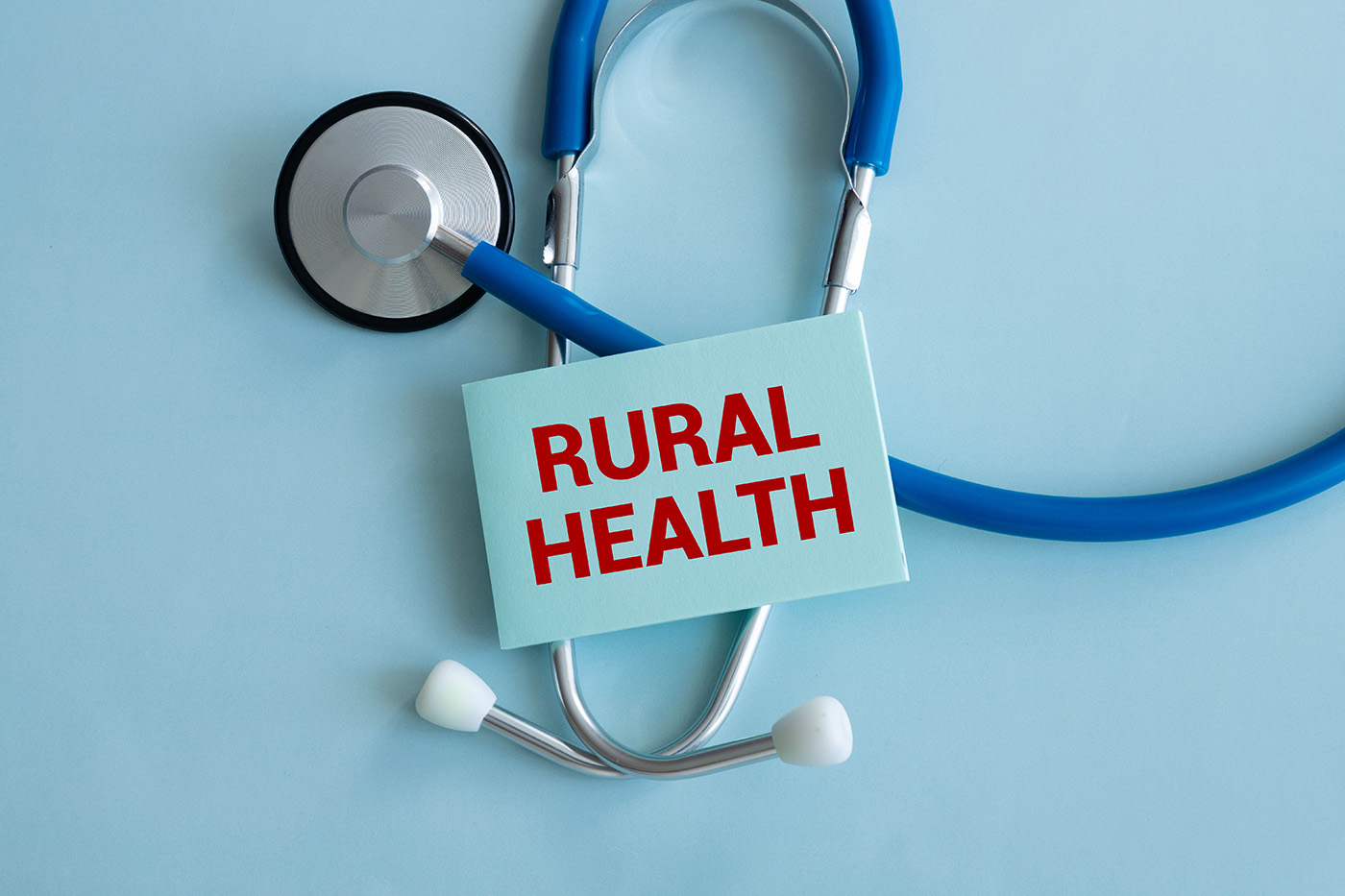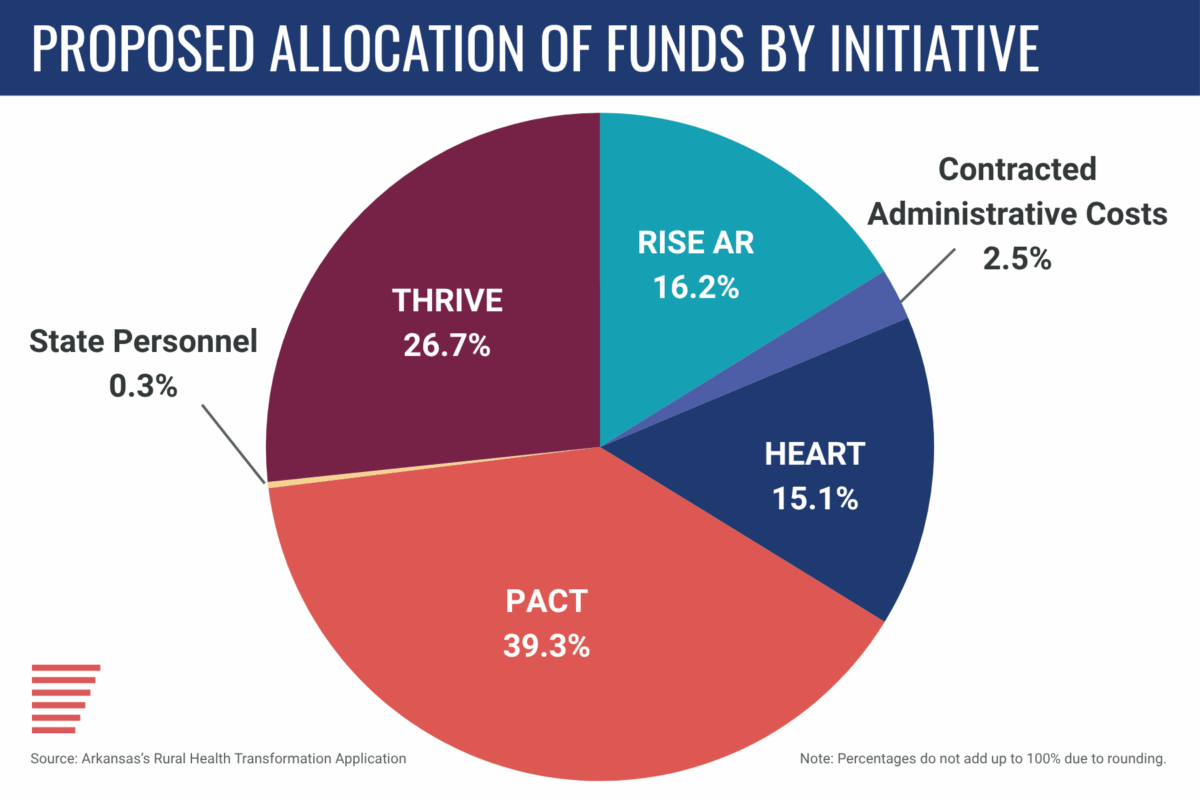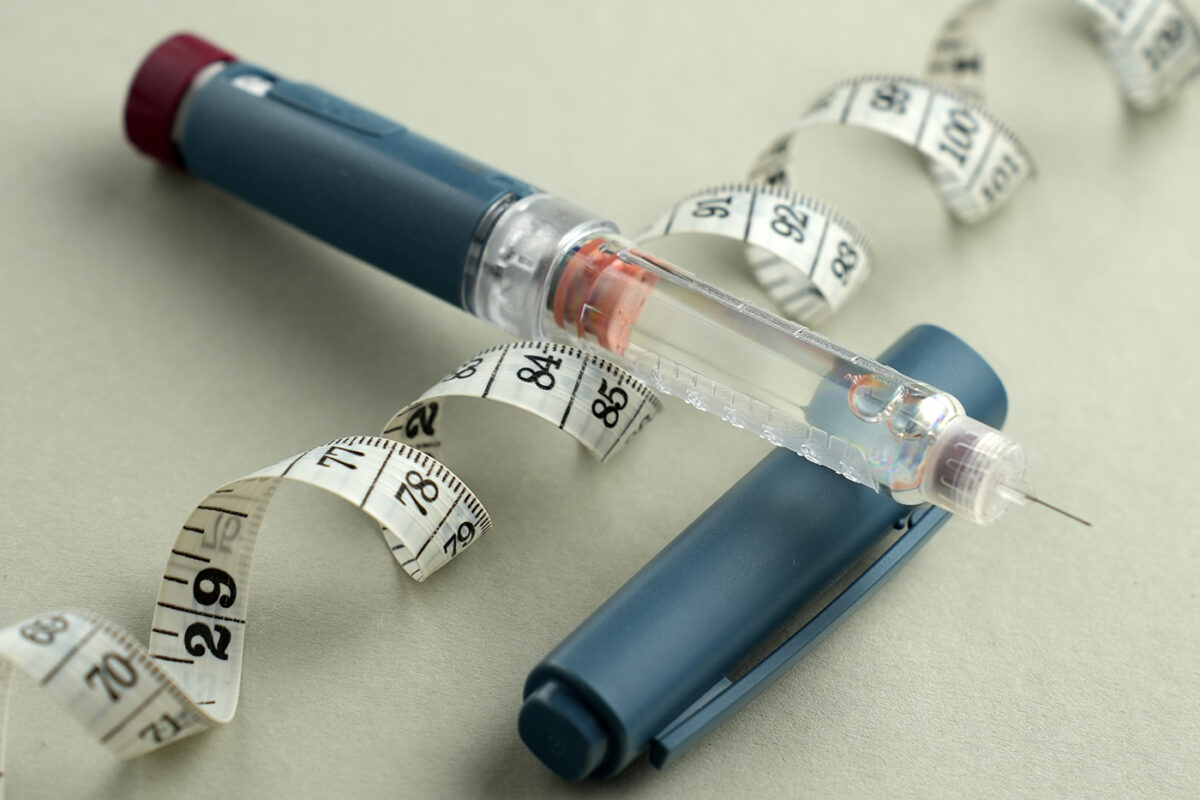
Gov. Sarah Huckabee Sanders announced November 5 that Arkansas has applied for federal funding through the Rural Health Transformation Program, a $50 billion investment in rural health care and public health that was included in the 2025 budget reconciliation law.
Under the program, every state with an approved application is guaranteed to receive at least $100 million per year for five years, plus an additional amount to be determined by the Centers for Medicare and Medicaid Services (CMS) using a points-based scoring system. Because the award amounts may vary, states were instructed to apply using a hypothetical budget of $200 million per year. Following this guidance, Arkansas’s application requests $200 million per year for 2026 through 2030, which would total $1 billion over the life of the program — over 99% of which would be sub-awarded to healthcare stakeholders around the state.
The publicly accessible 126-page application includes 24 letters of support from the governor and other key state officials, hospitals, advocacy groups, and the entirety of Arkansas’s congressional delegation.
Arkansas is proposing four new initiatives, comprising 19 programs targeting health and healthcare outcomes of interest to CMS:
- Healthy Eating, Active Recreation, and Transformation, or HEART. Five programs targeting nutrition, fitness, chronic disease, and faith-based contributions to community health.
- Promoting Access, Coordination, and Transformation, or PACT. Five programs expanding and improving telehealth and mobile health care, encouraging collaboration among disparate rural health providers, addressing transportation barriers to care, and broadening non-physician scope of practice.
- Recruitment Innovation, Skills, and Education for Arkansas, or RISE AR. Four programs offering new and expanded graduate medical educational opportunities, expanding incentives and support for recruiting and retaining rural healthcare professionals, developing new workforce pathways for non-physician professionals, and offering training to healthcare leaders and administrators.
- Telehealth, Health Monitoring, and Response Innovation for Vital Expansion, or THRIVE. Four programs investing in modernization of emergency medical services, building telehealth infrastructure, expanding telehealth scope and integration, and piloting at-home care models for chronic conditions.

Rather than providing direct relief to providers or reimbursement for uncompensated services, the application focuses on long-term, systemic improvements to rural health care and public health.
Arkansas’s application aligns with the Rural Health Association of Arkansas’s recommendations, which we included in an explainer in October. The key recommendations were:
- Develop a fair and transparent process for dispensing and monitoring funds. The application promises a transparent engagement framework including “public listening sessions, online comment opportunities, and engagement with regional and local partners.”
- Embrace a regional mindset. The PACT initiative includes several programs that encourage regional care collaboration, information technology integration, and data-sharing between rural healthcare providers.
- Use evidence to guide funding decisions. The state solicited over 300 project proposals from stakeholders and proposed programs that address common needs demonstrated in multiple proposals.
- Support essential services while encouraging innovation. The THRIVE initiative includes programs which invest in innovative emergency medical services systems, at-home care, and telehealth.
- Invest not only in infrastructure and institutions but also in people. The RISE AR initiative makes investments in healthcare workforce recruitment and retention, healthcare leadership education, and graduate medical education.
In a November 5 news release, the U.S. Department of Health and Human Services stated that “CMS will announce approved awardees by December 31, 2025, with funding distributed over five years beginning in federal fiscal year 2026.






